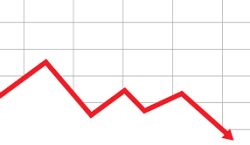

In this, each and everyone have a stake and a responsibility. Companies can play six essential roles:
1. Generating economic growth, the main driver of poverty alleviation.
2. Consciously including poor people into the value chains, thereby actively creating opportunities for poor people. This is called Inclusive Business Models.
3. Contributing knowledge and capabilities towards meeting the MDGs.
4. Developing innovative approaches.
5. Replicating successful approaches in various countries.
6. Advocating for poverty alleviation through the powerful voice of businesses.
Inclusive business models — business models that include poor people into value chains as producers, employees and consumers — can make a significant contribution towards meeting the Millennium Development Goals.
Employing these models, companies strive to make their business more sustainable through inter alia promotion of local entrepreneurship which often has a direct positive effect on poverty.
The businesses that create and use these innovative models range widely, from large multi-national companies and others large domestic companies, to small and medium-sized enterprises. Also using these models are not-for-profit organisations that use business principles to achieve their mission.
Critical for these models to be effective is that policymaking institutions ensure a conducive operative business environment, one that creates incentives for companies to actually use them.
Benefits of inclusive business models
– Building bridges between business and poor people for mutual benefit in the supply chain, in the workplace and the marketplace.
– Benefits go beyond immediate profits and higher incomes. For businesses they include driving innovations and new opportunities, building markets, reducing risks, and strengthening supply chains.
For the poor they include higher productivity, sustainable earnings and greater empowerment.
Examples of successful inclusive business models
Smart communications, The Philippines
Smart Communications, a wireless services provider, introduced a mobile-remittance service in 1999.
At least eight million Filipinos work and live abroad. Because of SMS technology such workers can now send money cheaper, faster and more conveniently. By serving low-income Filipinos, Smart grew rapidly — from 191 000 subscribers in 1999 to more than 24 million in 2006.
Equity Bank, Kenya — Focusing on giving women access to credit for economic activities, with the result of 20 000 women having registered for training courses in managing small business loans and with a dedicated “Women Empretec Center” established to provide entrepreneurship training, mentoring and support, resulting in expansion of local markets. Equity bank has seen extremely rapid growth.
Tinex, Macedonia — The supermarket Tinex was founded in 1994 and has grown from a 15-employee store to the country’s second largest supermarket chain. Tin-ex offers employment to every foster child turning 18.
The company, with a successful placement and mentoring programme for children, has a formal partnership with both state actors and non-for-profit organisation working with orphans and foster children.
The Coca-Cola Company — A four-year $11.5-million partnership with the Gates Found-ation, Techno Serve and Coca-Cola, will enable 50 000 fruit farmers in Uganda and Kenya to participate in the supply chain for the first time.
The project will work by training farmers in improving quality, increasing production, getting organised into farmer groups and by facilitating access to credit.
Targeting MDG 8 specifically. What can companies do?
Multinational companies
– Source from least-developed countries at fair conditions
– As pharmaceutical companies, make drugs affordable and accesible to the poor
– As ICT companies, make new technologies available to the poor
– In global forums, advocate for a fair-trade regime and for collaboration in expanding access to pharmaceuticals and new technologies
Large domestic companies
– Invest in research to develop lower-cost essential drugs
– Adopt new technologies in operations, build staff capacity for these technologies
– Collaborate with local regulators to develop capacity for new technologies and new industries
Small and medium enterprises
– Work with local and national authorities, certification and trade agencies to create access to international markets
– Deliver new technology and medicine to the poor
UNDP collaboration with the private sector
Drawing on its credibility as a trusted and neutral development partner, UNDP can act as a broker for private-sector investments that meet development needs.
In this regards, UNDP can play different roles in supporting and collaborating with private sector companies with the aim to reduce poverty, spur inclusive-growth and accelerate attainment of the MDGs.
To develop inclusive markets, collaboration happens primarily in the following priority areas:
– Creating a legal environment for rule-based, non-discriminatory and transparent market institutions.
– Integrating poor producers into value chains, specifically in sectors that offer the prospect of growth and transition to more-highly-value-added, better remunerated forms of employment.
– Brokering goods and services for the poor; promoting entrepreneurship, especially among the poor and in marginalised groups.
– Promoting corporate social responsibility.
For more details contact UNDP Resident Representative/UN Resident Coor-dinator
UNDP, Block 10, Arundel Office Park, Norfolk Road, Mount Pleasant, Harare, Zimbabwe, Tel: +263 4 338836-44
Website: www.undp.org.zw